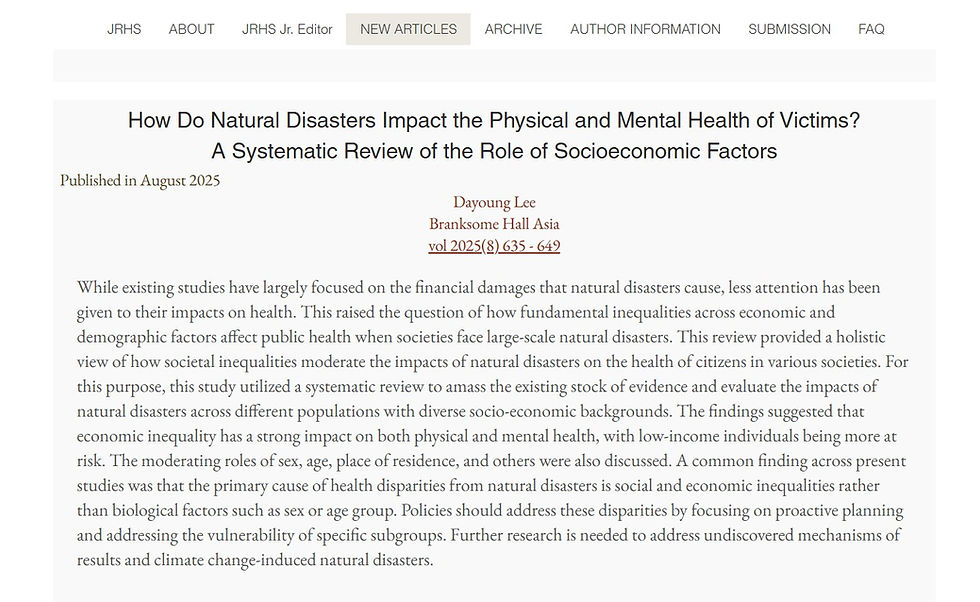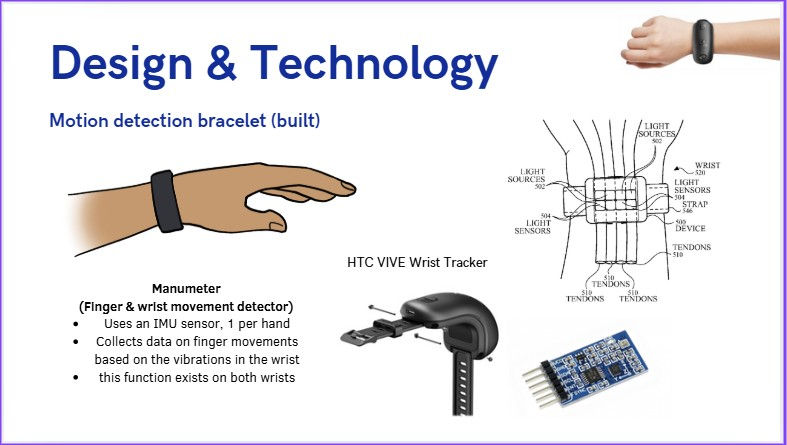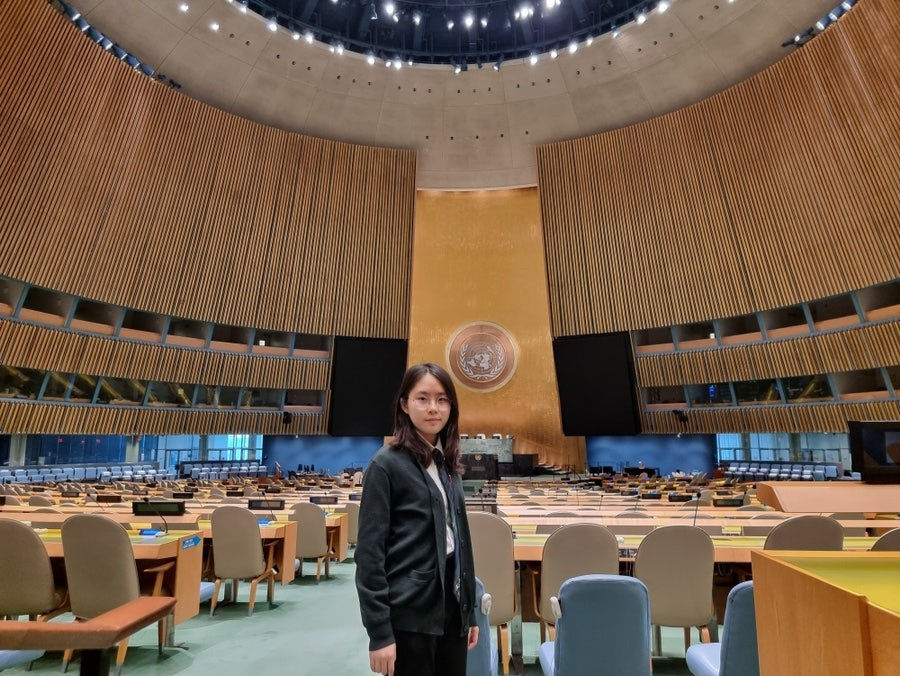From Numbers to Change
- Dayoung Lee
- Aug 14, 2025
- 3 min read
Updated: Nov 26, 2025
Turning Data into Actionable Solutions
“Data shows the facts, but it’s our interpretation that drives change.”
When I was in elementary school, I met barefoot children in a rural village in the Philippines. That moment reshaped my life. I realized that what seems “normal” is not granted to everyone, and this awakening led me to explore structural issues like inequality, climate crisis, and educational divides. Since then, I have continued service work, international engagement, data-driven research, and social innovation projects, discovering how data can become a tool to understand reality and design change.
For me, data science is more than a technical skill—it is a language to interpret and reduce the world’s disparities. My research connecting climate disasters and health inequality, published in an international high school journal, and my award-winning study on the relationship between digital education gaps and academic achievement, were milestones in this journey.
But growth also came from setbacks. When a GitHub error erased hundreds of raw data files, I refused to give up. I asked for help, and strangers from around the world guided me to restore the lost work. That experience taught me that the real strength of technology lies not only in algorithms, but also in learning from mistakes and building solidarity. Since then, I have promised myself to extend a helping hand to others facing barriers.
Highlights:
Publication – Journal of Emerging Investigators (JEI) – “Socioeconomic Factors in Math Achievement”, First author of a paper accepted to a highly selective peer-reviewed journal (<10% acceptance rate), reviewed by Harvard/ MIT-affi liated researchers. Recognized for rigor in robust regression modeling and relevance to global education equity policy.
First-Author Publication – Journal of Research High School – “Socioeconomic Disparities and Climate Disaster Vulnerability”, Published first-author systematic review recognized for methodological rigor and originality. Identifi ed socioeconomicinequality as a core driver of post-disaster physical/mental health risks in Journal of Research (Vol. 2025(8) 635-649)
Excellence Award–Public Education Data Analytics Competition – Top 5% among 600+ teams nationwide by Korea's Ministry of Education. Awarded for modeling rigor, data accuracy, andmeasurable policy impact on the digital divide in public education. (2025.07)
Gold & Bronze awards– Korea Youth IT Competition – Nationwide, government-endorsed competition with thousands of participants. Top 1% (Gold) and 5% (Bronze) awards grantedfor excellence in algorithmic modeling, data interpretation, precise coding, and problem-solving under timed conditions. (2024.11)
Harvard Secondary School Program: Data Mining, Discovery, and Exploration – Earned 4 college credits, completing Harvard’s 7-week Data Mining course. Mastered large-scale modeling, unsupervised ML, and ethics, building on HarvardX Python fundamentals. Strengthened analytical depth through FDR control, MapReduce assignments. Final project: Modeled ESG risk vs. stock returns using K-means clustering on financial data.

Educational Inequality Research
Predictive modeling project to identify educational disparities:
Machine learning-based prediction models
Resource allocation analysis
Impact assessment metrics
Intervention strategy evaluation
Technical Skills
Machine Learning Data Analysis

Netflix Data Analysis
Comprehensive analysis of Netflix's content library spanning 13 years:
80,000+ entries analyzed
Advanced data cleaning and preprocessing
Temporal and categorical trend analysis
Audience engagement metrics
Technical Skills
Python Pandas Matplotlib
HarvardX: Introduction to Data Science with Python Online Course
Utilize libraries Pandas, numPy, matplotlib, and SKLearn
Basic machine learning models
Build a foundation of Python in machine learning and artificial intelligence
Capstone Project
Technical Skills
Statistics Pandas Matploib SKLearn Data Analysis



Comments